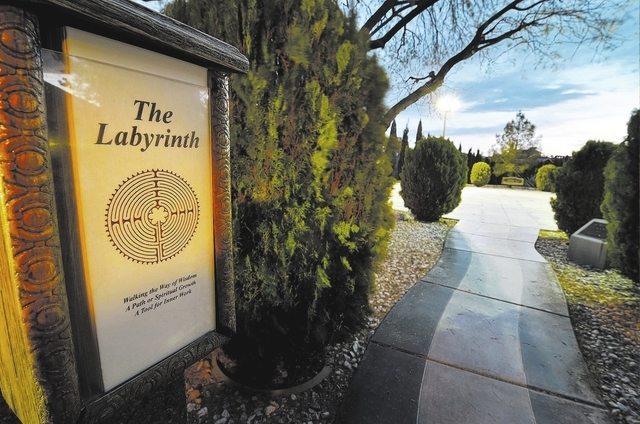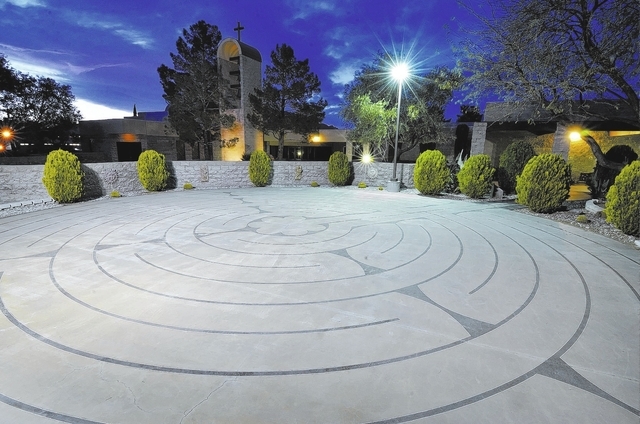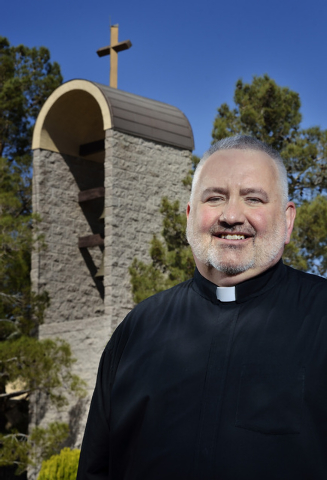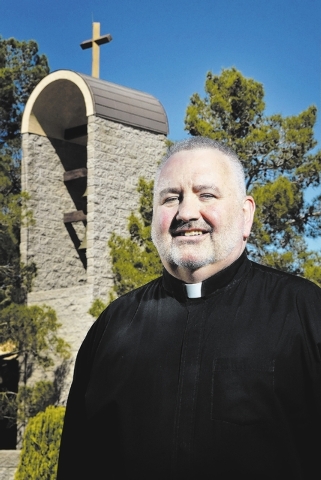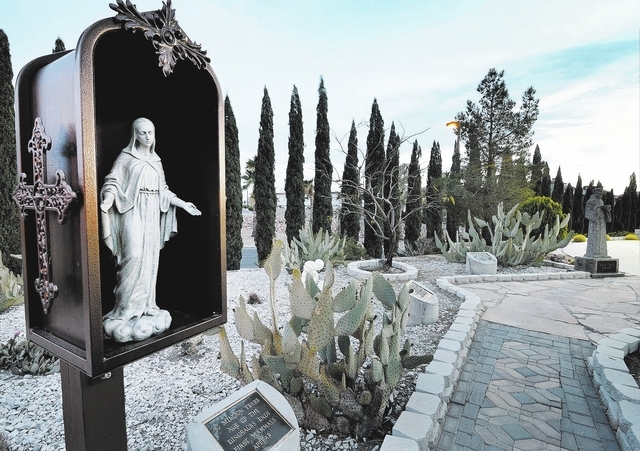Creating lasting change: Lent season of reflection
Paulette McDonald, 58, is a St. Andrew’s parishioner in Boulder City, and a lifelong Catholic. For her and others, the religious season of Lent and its 40 days leading up to Easter are an opportunity for self-transformation. And, it has nothing to do with giving up chocolate.
Like many born-and-raised Catholics, she recalls a childhood Lenten routine that included morning Mass and the renunciation of chocolate and candy.
“As I got more involved for myself in the Catholic faith, rather than with my parents, I started to understand and learn it wasn’t about giving up. It was about change. About changing myself for the good, and not having it end on Easter,” she says.
McDonald says she’s used Lent to expand her prayer life, participating in a prayer group that practices lectio divina. According to McDonald, participants listen to scripture, journaling on the words that touch them, as a way to receive guidance for making change. She’s participated in the practice for 13 years.
This Lenten season, she’s using the practice to better her relationships with family, church family and the community. It’s also helping her through the grieving process, after her father’s death in October.
The Lenten retreat is also a contemplative option at St. Andrew’s. Sister Janet Ackerman will lead a preached retreat — the St. Andrew Catholic Community Parish Lenten retreat, Friday night and Saturday. She’ll cover everything from healing personal hurts to doing outreach that sometimes touches the ugly underbelly of Las Vegas life — as in the case of Nevadans for the Common Good, an interfaith group that Ackerman says has addressed sex trafficking.
Such retreats weren’t always built deftly into Catholic parish life, she acknowledges. But people are becoming more aware.
“The giving up of candy is for kids,” she says. “And we have to choose not to remain children all of our lives. Just as our body grows, so must our spirit grow.”
Some parishioners are stymied during Lent, either because they set goals that aren’t attainable, or aren’t concrete enough, according to the Rev. Bob Stoeckig, pastor of St. Andrew’s.
He says he challenges people to get specific. “People will say generic things like, ‘Well, I’ll pray more this Lent.’ Well, what does that mean? Does it mean I’ve been praying five minutes a day so I’m going to 10? Or does it mean, I haven’t been praying at all, so I’m going to set a goal for three minutes a day?” In making it concrete, he says, parishioners realize that goals are achievable and measurable.
Stoeckig does his share of redirecting — at times, he says, encouraging people to “experience the mercy and forgiveness of God, who calls us to get up again and start on the path when we’ve fallen.”
His parishioners have taken up exertions as simple as giving up all-day-running cable news that offers only one view of the world. Others volunteer, challenging themselves to step out of their comfort zones, whether that means participating in Boulder City’s emergency aid program, or bringing food to those who need it.
More people, he says, also take advantage of St. Andrew’s outdoor Labyrinth, a spiraling meditation path and problem-solving tool based on sacred geometry, which offers another way to pray.
Some Episcopalians make a Lenten practice of helping a neighbor, in addition to taking on special service projects at places such as Friends in the Desert at St. Timothy’s Episcopal Church in Henderson, according to the Rt. Rev. Dan Edwards, bishop of the Episcopal Diocese of Nevada. They also do prayer practices, meditations and study programs.
Edwards describes Lent as the imitation of what Jesus did in the desert for 40 days after his baptism — and the continuation of a tradition initiated by the first generation of Christians, who prepared for baptism through 40 days of spiritual practice and study. It’s also an opportunity, he says, to “do what in 12-step programs they call ‘taking our inventory.’”
Appropriately, Stoeckig says, the root of the word “Lent” comes from a word for “spring.”
“I would call it a spiritual springtime,” he says, adding that Lent is a time to “focus on the parts that have become dry, or the parts that maybe need to be pruned in our lives, so that new life can emerge.”
The Rev. Dennis Hutson, pastor of Advent United Methodist Church, stresses that Lent doesn’t belong only to Catholicism. It’s also a Protestant tradition among liturgical denominations that acknowledge the Christian calendar.
And, for those who grew up as he did, the “fad” of giving up something for Lent isn’t a good fit, he says. “You don’t usually feel too compelled to give up eating a meal. Because there would have been times in your life when you had to go without a meal, not out of choice.”
Instead, he encourages people to focus on being of service to God and others, to get their hearts “right,” and to cleanse themselves of unhealthy habits — all with a strong emphasis on prayer. His church has encouraged members to serve as hosts for approximately eight or nine home prayer groups around the valley.
Other denominations don’t broach the topic of Lent at all, officially. According to Neal Creecy, pastor of growth and development at Shadow Hills Church, a Southern Baptist church: “Typically, Baptists are not as ritualistic as other denominations. So it’s not something that we normally practice on a regular basis.” But, “there’s nothing necessarily that we’re opposed to with Lent, as far as, we think it’s a wonderful thing to have a time of reflection and a time of fasting and preparation for the celebration of Easter.”
Some of his church members and even some staff are practicing it, he adds.



